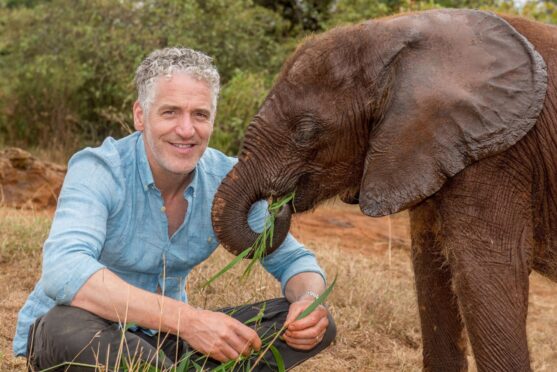
For more than 30 years Gordon Buchanan, one of the world’s best-known wildlife cameramen, has captured outstanding footage from the farthest corners of the earth.
And he is where he loves most – in the great outdoors – when The Sunday Post catches up with him near his home in Glasgow.
True to form, he’s dumped his computer for the afternoon in favour of fresh air.
Being out in the wild, we learn, was his escape from the gritty Dumbarton housing estate he lived on in early childhood, at the foot of the Kilpatrick Hills.
And later, growing up on the Isle of Mull, the natural world was his refuge from an abusive stepfather who he feared would kill his mother.
His revelations of the violence she suffered, and the psychological torment inflicted on her children, are revealed for the first time in Gordon’s emotionally honest and raw memoir In the Hide: How The Natural World Saved My Life.
It also charts his remarkable journey from the concrete jungle that was the Bellsmyre housing estate to the forests of Africa and beyond.
But this is not a pity memoir. It is an intimate and inspiring account of resilience in the face of hardship and heartache, brimming with hope and humour – even The Sunday Post’s Oor Wullie gets a mention.
And it marks the arrival of a bold new voice in nature writing.
The path to an incredible career
Gordon’s challenging past paved the way for the patience, pragmatism and courage vital in a profession that saw him walking with wolves and escaping the jaws of a starving polar bear.
Now 52, Gordon, one of four siblings, admitted writing about the six hard years from age eight he spent with his now deceased stepfather Alastair was “in many ways, difficult”.
But Gordon, himself a father of two, explained: “I was able to look at it quite dispassionately, because I had processed and dealt with that stuff a long time ago.
“It wasn’t cathartic to write about, but I thought I needed to touch on it because it was a big period of my life that really gave me a lot of resilience and set me on the path to this career.”
In the book he recalls hearing his mother’s head “being smashed off a wall” and seeing “the bruised indentations of terrible thumbs and fingers” on her throat. Later, during a Hogmanay party, he heard his mother “choking” at the hands of his stepfather until an adult intervened.
He was 14 when an incident in 1986 became the final straw.
Gordon writes of the time he returned home to find “a carpet coated with blood”.
Reliving the moment, he writes: “I panicked. I remember racing up the stairs, following this horrible crimson trail into the bedroom where her blood was everywhere… This is it, I thought, he’s killed her.”
Gordon’s mother, thankfully, survived being beaten as she slept and recovered from her injuries. By the end of that summer, Alastair was out of the house.
Gordon revealed that she later found happiness in a loving and respectful relationship with a man she has now been married to for 30 years. But the pain caused in those early days remained with Gordon.
He told The Sunday Post: “I had so much anger towards Alastair. From the age of eight until I was 17, I thought about him a lot of the time and carried this anger around with me. I wanted to rid myself of that.”
He did, and with his focus on the positives in his life, he thrived. He said: “My mum has always done her very best. She has given us the most amazing life.
“And even with all the bad things, we are all really resilient people. I have learned a lot about myself and life and just getting on with things when the world is far from ideal.”
Gordon, who with his siblings stayed in touch with the biological dad who left the family when he was four, fondly remembers Bellsmyre in the book and the mischief he and his siblings made.
Like the day, aged nine, while visiting his dad’s place, that his brother Sandy asked him to pop a metal bucket on his head while he took aim with an airgun. He laughingly recalls in the book: “Like the celebrated Scots cartoon hero Oor Wullie, there I was, proudly swinging my tin bucket in my hand as I made my way down the grass to gratefully take up position for the firing squad of one.”
But he peeked from beneath its rim and took a pellet between the eyes. Fortunately, no serious damage was done, but he writes: “Had it been a more powerful air rifle, or if Sandy had been any closer, or, God forbid, he’d actually hit me in one of my eyes – then I would either have been Scotland’s first cycloptic wildlife cameraman or, much more likely, my life’s journey would’ve been abruptly curtailed.”
Luckily, it wasn’t. Gordon got his break in wildlife photography while he was washing dishes at the then Captain’s Table restaurant in Tobermory and was still a reluctant pupil at the town’s high school. The restaurant’s owner was married to a wildlife cameraman, the late Nick Gordon, and introduced them. “I helped him out with jobs here and there and he would give me books about wildlife filming to read and then, when I was 17, he offered me a job to go to Sierra Leone in West Africa,” Gordon said.
He found his passion and in it his profession.
Wild adventures
Since then, his adventures have been boundless. From wild snow wolf packs in the Canadian High Arctic of Ellesmere, to leopards in Mumbai, to perhaps his most terrifying experience, filming polar bears in Svalbard as they waited to prey on seals at a breathing hole in the ice.
Taking pictures close by from inside a Perspex cube, Gordon waited. It was here that he came close to being eaten alive.
Reliving the experience, he writes: “The polar bear arrived. She was female. She was enormous. She was hungry. And she completely ignored the breathing hole and made a beeline for me.”
There followed a full-on 45-minute assault until, exhausted, the bear finally gave up. “I was completely c******* myself, but, through the fog of all that fear, I was also aware of how extraordinary it was as a moment,” he writes in the book.
Gordon, who admits to being virtually written off by his teachers – although never by himself – now holds two honorary doctorates, from Stirling University and Queen Mary University of London.
He laughed: “It is a great honour but it tickles me no end because my teachers would look back and say: ‘HE is a double doctor?’
“If I was to go back in time and speak to the 17-year-old version of me I’d say: ‘Do you know the delights you have ahead of you?’
“I think he would be relieved he made something of himself.”
In The Hide: How The Natural World Saved My Life by Gordon Buchanan is published by Witness Books, out now.
Gordon Buchanan’s Lions, Tigers and Bears talk tour kicks off on February 20 and will include dates in Perth, Dumfries, Stirling, Aberdeen and Glasgow.
Enjoy the convenience of having The Sunday Post delivered as a digital ePaper straight to your smartphone, tablet or computer.
Subscribe for only £5.49 a month and enjoy all the benefits of the printed paper as a digital replica.
Subscribe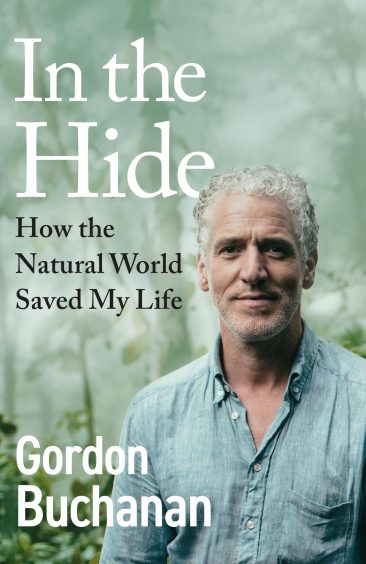
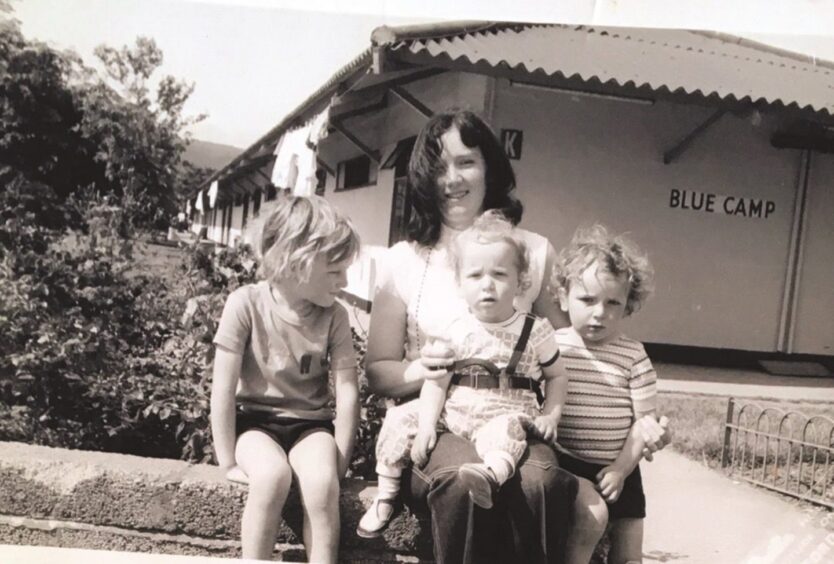 © Supplied
© Supplied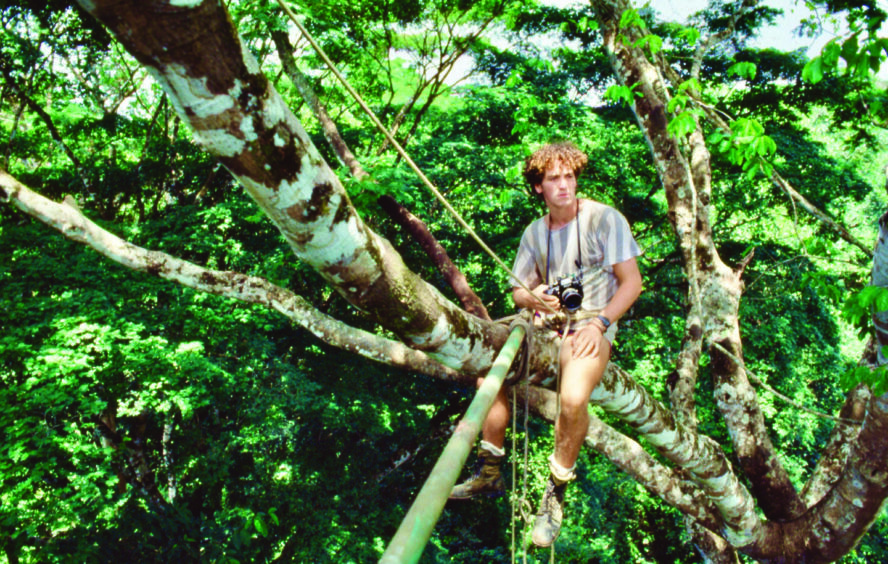 © Supplied by Random House
© Supplied by Random House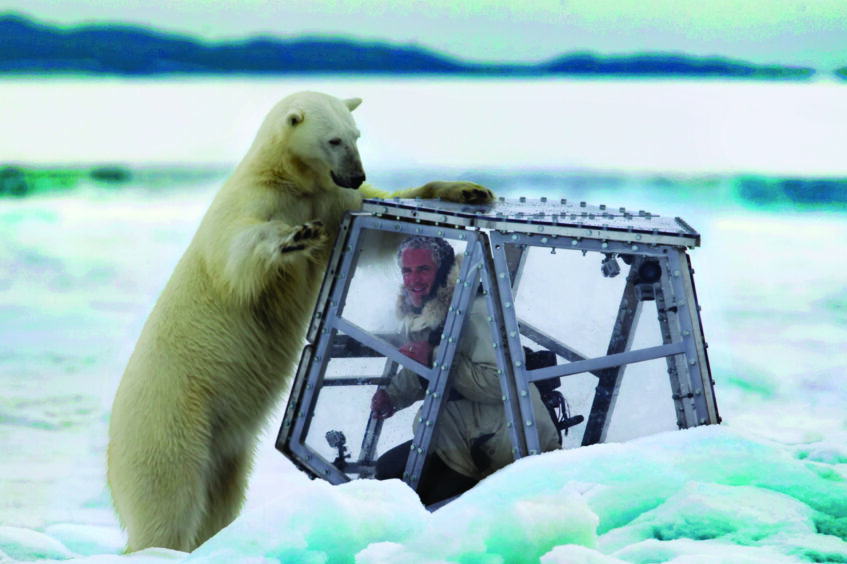 © Jason Roberts
© Jason Roberts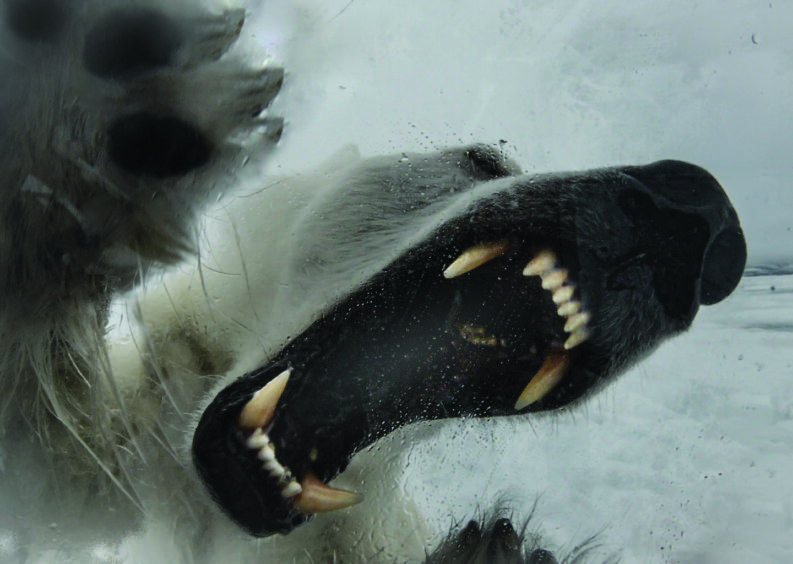 © Supplied
© Supplied